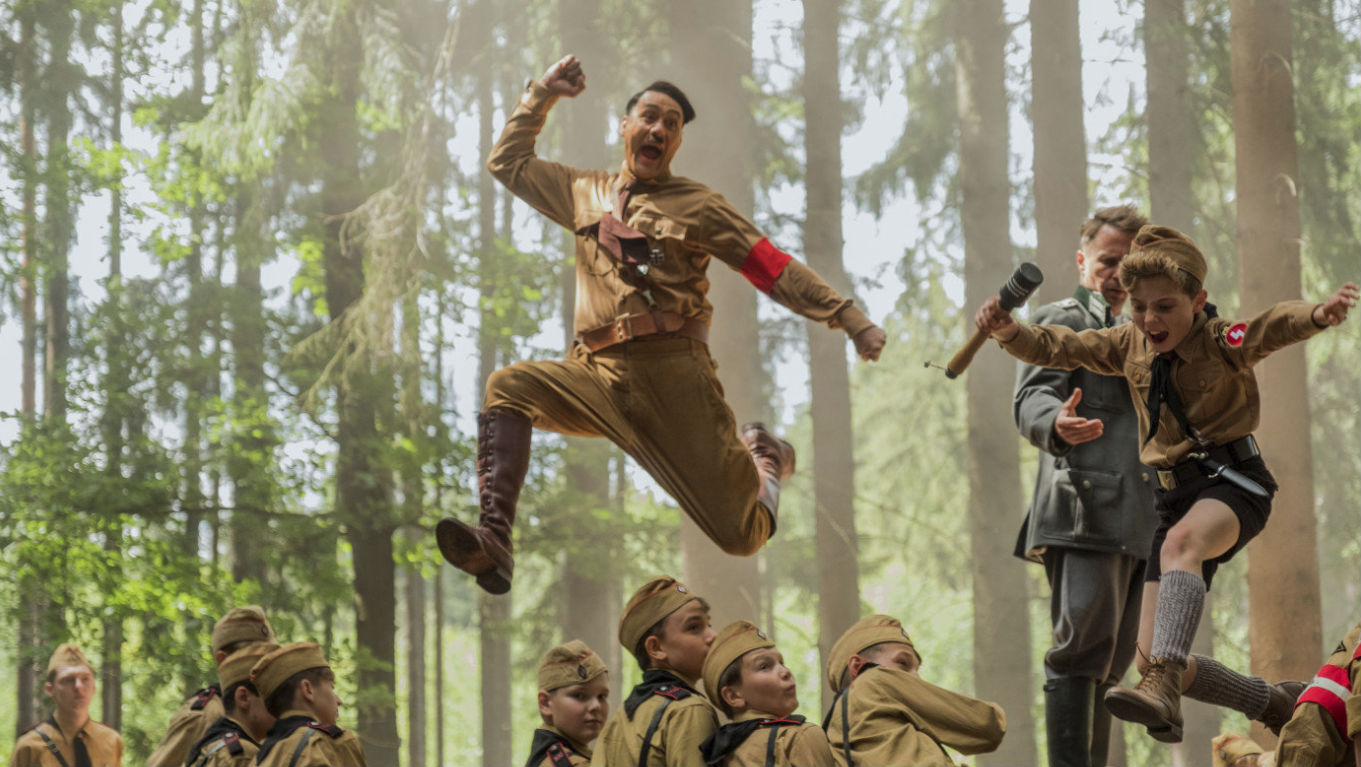Disney’s ‘edgy’ new comedy on Hitler: what the critics said
Jojo Rabbit ‘mocks the shit out of Nazis’ but does the film play it too safe?

A free daily email with the biggest news stories of the day – and the best features from TheWeek.com
You are now subscribed
Your newsletter sign-up was successful
Disney executives fear that the studio’s upcoming “edgy comedy” about a lonely ten-year-old and his imaginary friend Adolf Hitler might harm its family-friendly reputation, according to reports.
Jojo Rabbit is not due out in Europe until January but premiered last night at the Toronto International Film Festival. Director Taika Waititi, known for Thor: Ragnarok, was forced to play Hitler because he couldn’t find an actor willing to take on the role.
Roman Griffin Davis is cast in the role of John “Jojo” Betzler, a boy in the Hitler Youth whose mother (Scarlett Johansson) is protecting a Jewish girl in their home, prompting him to question his beliefs.
The Week
Escape your echo chamber. Get the facts behind the news, plus analysis from multiple perspectives.

Sign up for The Week's Free Newsletters
From our morning news briefing to a weekly Good News Newsletter, get the best of The Week delivered directly to your inbox.
From our morning news briefing to a weekly Good News Newsletter, get the best of The Week delivered directly to your inbox.
The film describes itself as a “satire that goes to war on hate” - but what do the critics think?
Matt Goldberg at Collider calls it “the sweetest, funniest movie featuring Nazis you’ll ever see”.
One of the best ways to confront fascists, who rely so much on their perceived heroism, is to laugh at them, says Goldberg.
“If you leave the space open, fascists will come to fill it, so you can’t give them any ground. And wisely, rather than taking fascists on directly and treating them as equals in the vaunted ‘marketplace of ideas’, Waititi just mocks the shit out of them,” he says.
A free daily email with the biggest news stories of the day – and the best features from TheWeek.com
But IndieWire’s Eric Kohn complains that the “cartoon Nazis” are “so far removed from reality that they make it all too easy to laugh off the circumstances at hand”.
He says: “Nazis weren’t just a bunch of dopey chumps, and Jojo’s story concludes far too easily for its own good. Yes, Waititi has made a sugary fantasy in the most unlikely places. But in the process, it buries the awful truth.”
This “feel-good hipster Nazi comedy” creates the illusion of danger while playing it safe, says Variety’s Owen Gleiberman. “It’s like a Wes Anderson movie set during the Third Reich.”
Tim Grierson at Screen Daily agrees that it “ends up feeling a little too safe, a little too scattered, and a little too inconsequential” and despite being “set during one of history’s darkest periods, it seems afraid to stare into that void”.
Keith Uhlich at Slant describes it as “Marvel Presents Mein Kampf”, a “misguided monstrosity” that is “utterly devoid of laughs”.
“Waititi proves incapable of dealing with the twin horrors of oppression and indoctrination, of young and old alike, beyond cheap-seats sentimentality and joke-making,” says Uhlich.
Hannah Woodhead at Little White Lies notes that Waititi has never shied away from sharing his politics, yet Jojo Rabbit “feels oddly impartial”.
She concludes: “Nazis still exist, and they don’t need better PR. It feels like a sadly missed opportunity to create something more radical and challenging.”